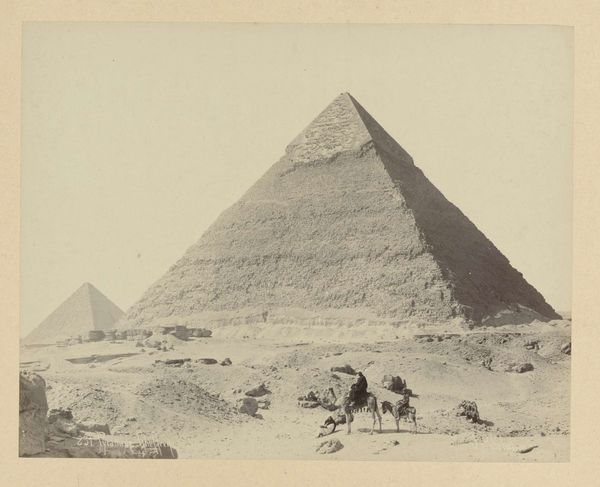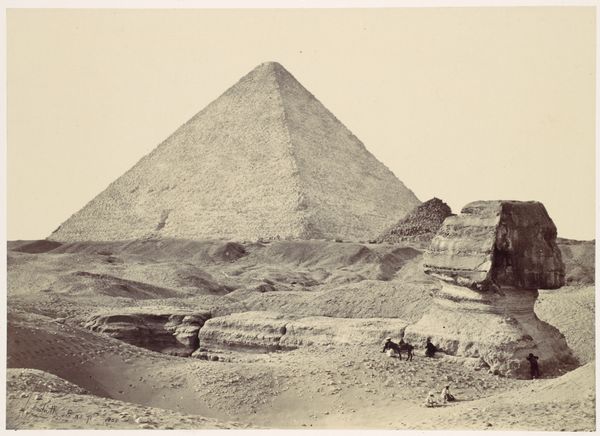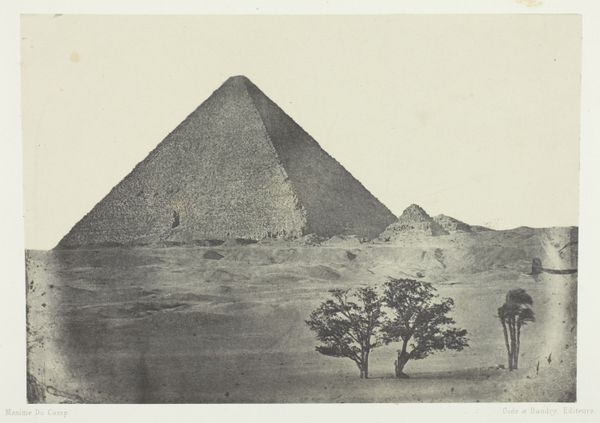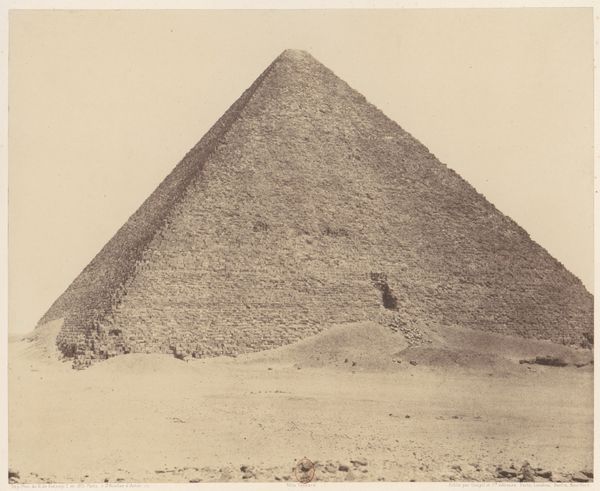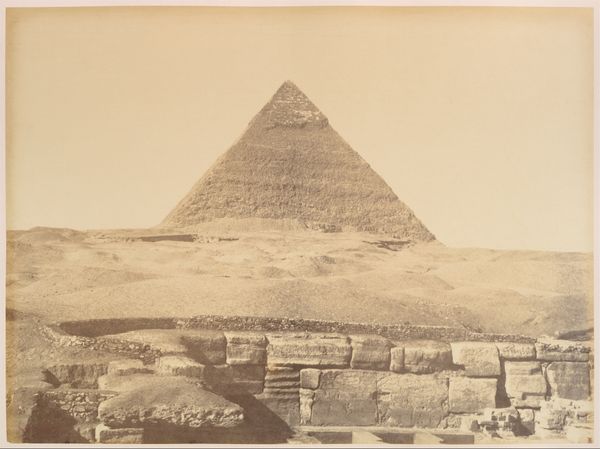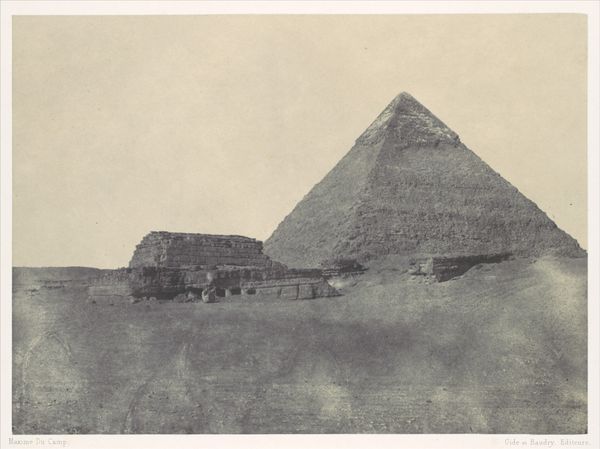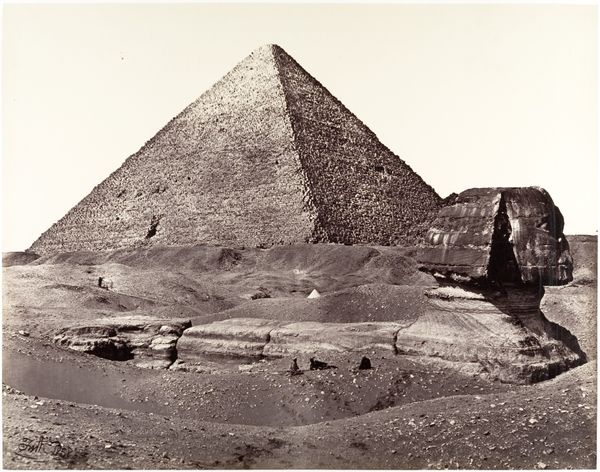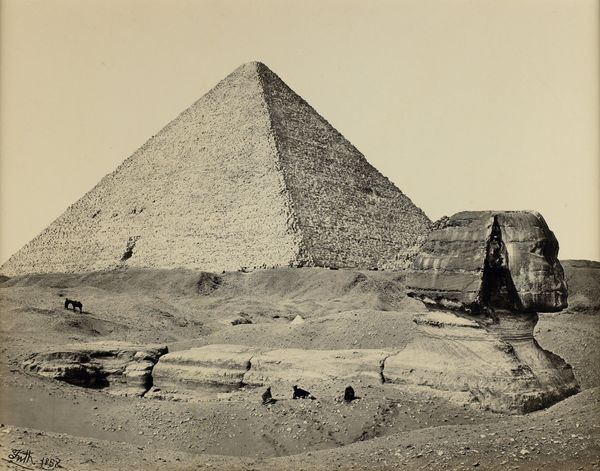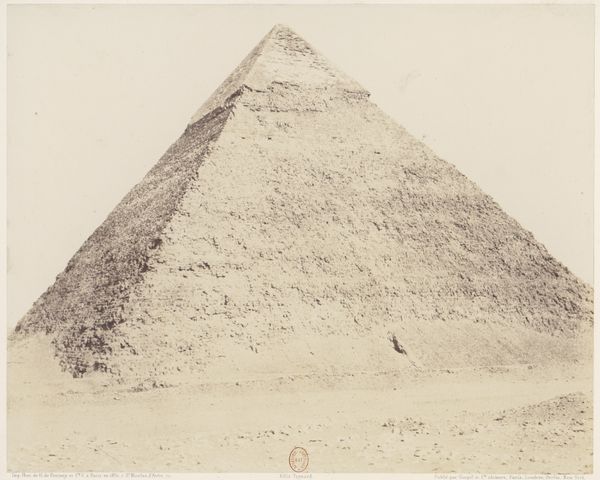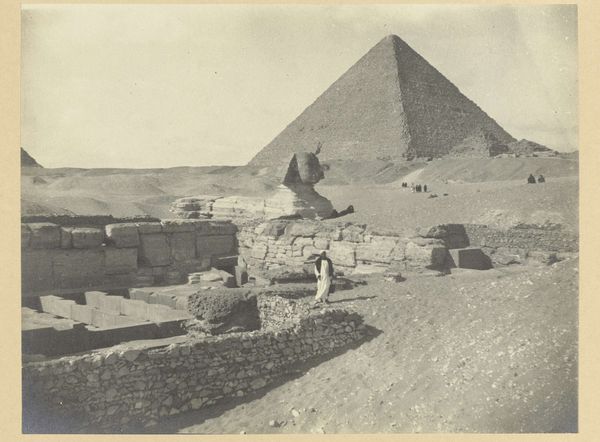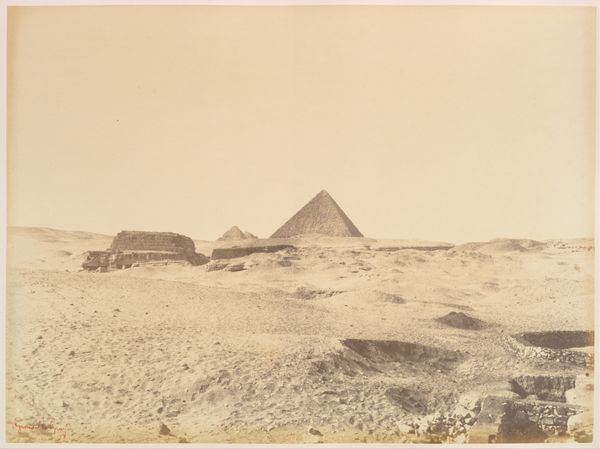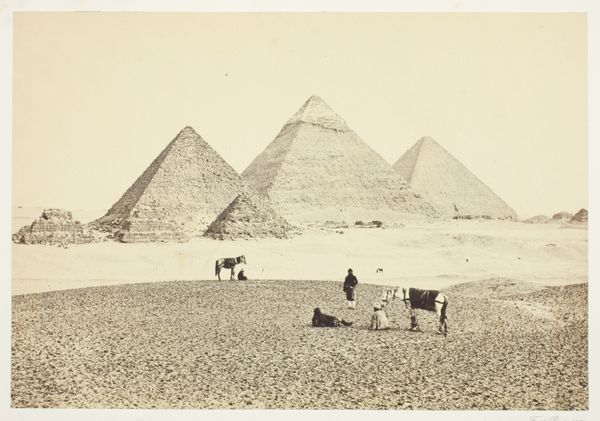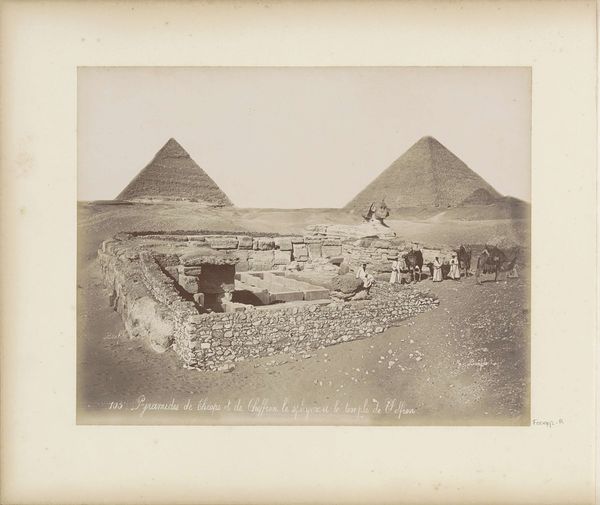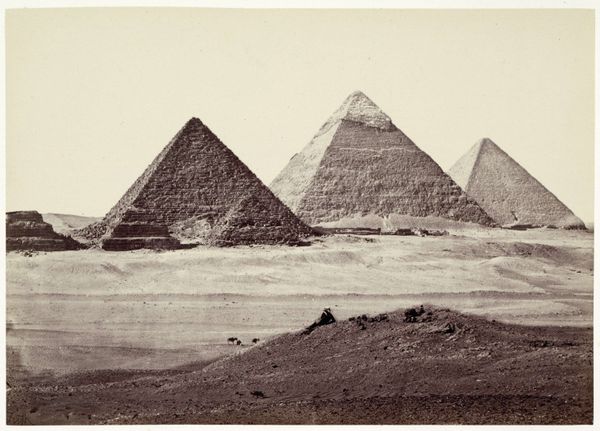
photography, gelatin-silver-print
#
landscape
#
ancient-egyptian-art
#
photography
#
ancient-mediterranean
#
gelatin-silver-print
#
cityscape
Dimensions: height 157 mm, width 224 mm, height 314 mm, width 435 mm
Copyright: Rijks Museum: Open Domain
This photograph of the Pyramids of Gizeh and the Sphinx was made by Francis Frith, using the collodion process, a popular method in the mid-19th century. Frith, like other photographers of the time, was not only an artist but also a businessman. The collodion process involved coating a glass plate with a light-sensitive emulsion, exposing it in the camera, and then developing it immediately. This demanding, alchemical process required both skill and patience, which Frith and his assistants would have needed in abundance. The sepia tones and sharp details of this print are really characteristic of the era. The tonal range reminds us of the physical labor that went into producing each image, from preparing the chemicals to hauling bulky equipment across the desert. Ultimately, Frith's photographs weren't just art, they were commodities, feeding the Victorian public's desire for exotic imagery. This image highlights the complex interplay between artistic vision, technical skill, and the emerging forces of global capitalism.
Comments
No comments
Be the first to comment and join the conversation on the ultimate creative platform.
